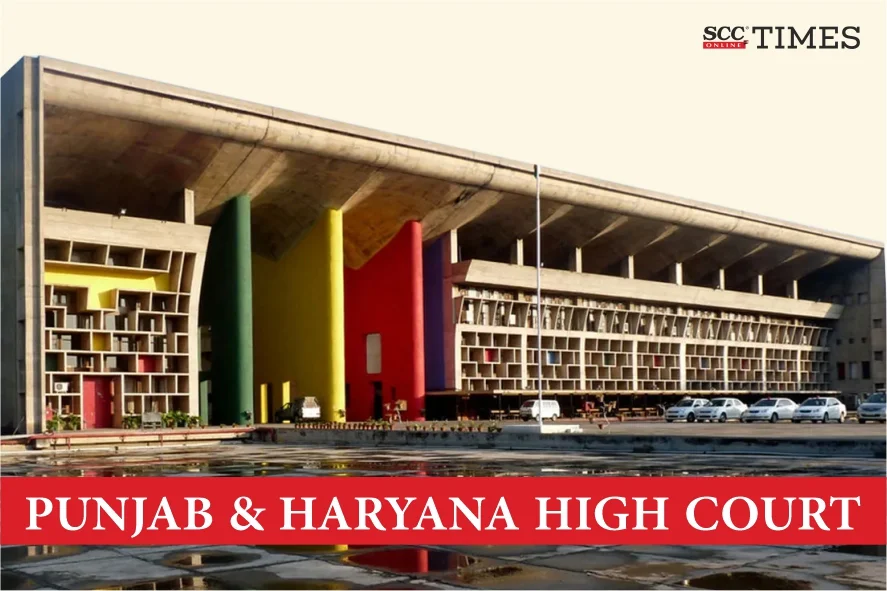Punjab and Haryana High Court: In a revision petition filed by a genetic clinic and its Directors/doctors against their conviction under Sections 4(3) read with Rule 9, 5(1)(b) and 23 of the Pre-Conception and Prenatal Diagnostic Techniques (Prohibition of Sex Selection) Act, 1994 (‘the Act’) as well as the judgment modifying their sentence, a Single Judge Bench of Jasjit Singh Bedi, J., allowed the petition, holding that the complaint ought to have been filed by a three-member committee as per Section 17(3)(b) which was not done in the present prenatal procedural lapse case, thus, the complaint was not maintainable and the subsequent proceedings and conviction stood vitiated.
Background
The petitioner was a genetic clinic registered under Section 3 of the Act. The doctors were individuals responsible for the clinic’s operations and in charge of its business, i.e., the Directors. In 2006, the District Nodal Officer (PNDT) requested the State to investigate the clinic, and upon inspection of the premises, it was discovered that prima facie there was gross contravention of the Act. Accordingly, a complaint was filed on behalf of the State through the District Appropriate Authority-cum Civil Surgeon, Hisar, for alleged deficiencies in the maintenance of records resulting in contravention of Section 4(3) and 5 (1)(b) read with Rule 9 punishable under Section 23 of the Act.
In 2008, the Trial Court convicted the doctors under Section 4(3) read with Rule 9 and Section 5(1)(b), punishable under Section 23 of the Act, and sentenced them to rigorous imprisonment for three years each.
Aggrieved, the doctors filed an appeal before the Sessions Court, which was partly accepted, and their sentences were reduced by a year under Section 4(3) read with Rule 9 of the Act. The doctors filed the present revision petition against the judgments of conviction and modification.
During the pendency of the present petition, the sentences of the doctors were suspended by the Court.
Analysis
Regarding the contention that the complaint could have only been filed by the District Appropriate Authority (a three-member body) according to the Court’s interpretation of Section 17(3)(b) of the Act in 2014, the Court stated that it was apparent that the interpretation of a provision relates to the date of the law itself and cannot be prospective of the judgment. When the Court decides that the interpretation given to a particular provision previously was not legal, it declares the law as it stood right from the beginning of its promulgation. In this regard, the Court referred to Lily Thomas v. Union of India, (2000) 6 SCC 224 and Sarwan Kumar v. Madan Lal Aggarwal, (2003) 4 SCC 147.
Thus, the Court held that under Section 17(3)(b), the District Level Appropriate Authority is also to be a three-member body. Therefore, this interpretation of the law would be deemed to exist from 1994 itself, i.e., the date of promulgation of the Act. In this regard, the Court referred to Ritu Prabhakar v. State of Haryana, 2016 SCC OnLine P&H 19874 and Anil Bansal v. District Appropriate Authority, 2020 SCC OnLine P&H 5374.
Considering the aforesaid, the Court noted that in the present prenatal procedural lapse case, the complaint was filed by one doctor alone when it ought to have been filed by a three-member committee appointed by a Notification under Section 17 of the Act. Since this was not done, the Court held that the complaint was not maintainable, and therefore, the subsequent proceedings and conviction stood vitiated.
Accordingly, the Court allowed the petition and set aside the impugned judgments, thereby acquitting the doctors.
[Kamboj Ultrasound and Diagnostic Pvt. Ltd. v. State of Haryana, 2025 SCC OnLine P&H 2591, decided on 15-05-2025]
Advocates who appeared in this case:
For the petitioners: S.S. Narula
For the respondent: Munish Sharma, DAG, Haryana


